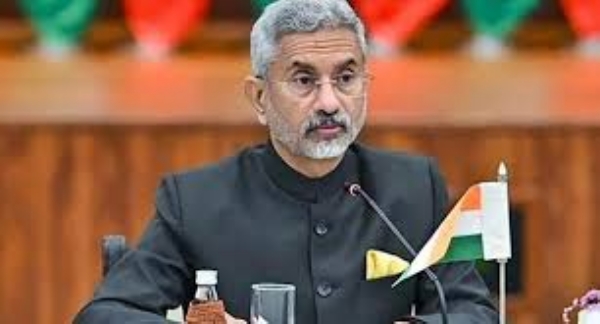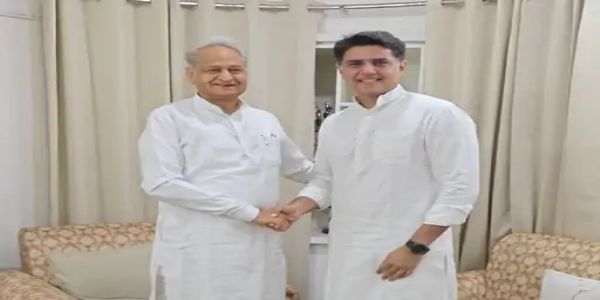
Delhi, 7 June (H.S.): India's External Affairs Minister S. Jaishankar emphasized the country's zero tolerance policy towards terrorism during discussions with British Foreign Secretary David Lammy, who was visiting New Delhi. Jaishankar's comments aimed to clarify India's stance on terrorism, particularly in light of the recent tensions involving cross-border terrorism from Pakistan and concerns over the hyphenation of India and Pakistan by various countries. He highlighted that India cannot accept perpetrators of evil being equated with their victims.
The two officials discussed enhancing the strategic partnership and trade relations between India and the UK. Lammy's visit included meetings with Prime Minister Narendra Modi before their discussions. Jaishankar expressed gratitude for the UK's condemnation of the recent barbaric terror attack in Pahalgam and continued support for India's fight against terrorism. He pointed out the significance of the new India-UK free trade agreement (FTA) and the double contribution convention, viewing them as milestones that would boost trade and investment while enhancing bilateral ties.
During his trip, Lammy also visited Islamabad, where he supported the understanding reached between India and Pakistan to cease military actions. The UK has been involved in facilitating communication between the two nations, aimed at de-escalating tensions. The discussions highlighted migration as a priority for improving both countries' relations, with Lammy noting that securing borders and addressing migration issues is vital for the UK government.
Lammy reflected on the deepening relationship between India and the UK, mentioning how trade has significantly increased and cultural ties have strengthened since his appointment as Foreign Secretary. He described India as a key partner in the UK's Plan for Change and expressed optimism for future collaborations, particularly focusing on technology and economic growth.
The dialogues between Jaishankar and Lammy serve as a reiteration of shared concerns over terrorism and the commitment to strengthening bilateral economic and strategic frameworks. The emphasis on security and combating terrorism aligns with India's expectations from its international partners to recognize the complexities of terrorism while also fostering growth opportunities through enhanced trade and migration partnerships.
The signing of the free trade agreement with India marks the beginning of a comprehensive partnership aimed at fostering growth, technology, climate action, migration priorities, and security for both nations. The British foreign secretary emphasized building a modern alliance with India, underlining the desire for greater collaboration.
Scheduled meetings with influential Indian business leaders aim to explore avenues for enhancing Indian investments in the UK, where India has consistently been a leading source of investments for five years, ranked second in 2023-24 based on project numbers.
Indian External Affairs Minister S. Jaishankar highlighted recent initiatives to strengthen bilateral ties, mentioning that significant progress has been made since the last visit to India. He specifically noted the Technology Security Initiative (TSI), which facilitates deeper cooperative efforts in strategic technology sectors, including artificial intelligence, semiconductors, telecommunications, quantum technology, health-tech, bio-tech, critical minerals, and advanced materials.
Additionally, the launch of the strategic exports and technology cooperation dialogue, with its first meeting held recently, is designed to enhance the effectiveness of the TSI in promoting trade in critical and emerging technologies while addressing relevant licensing or regulatory hurdles.
Jaishankar also discussed the establishment of a UK-India infrastructure financial bridge, which aims to attract significant long-term capital from the UK to support India's infrastructure development. In the education sector, collaboration is growing, with more UK universities planning to establish campuses in India. Furthermore, people-to-people ties have been reinforced with the inauguration of new consulates in Manchester and Belfast, reflecting the commitment to strengthen connections.
The overall aim of these discussions and initiatives is to further deepen and diversify the India-UK partnership, focusing on a wide range of sectors that will yield mutual benefits and foster long-term cooperation.
---------------
Hindusthan Samachar / Jun Sarkar







